Latest questions:
Trending questions:
Hot questions:
The value of a college degree in the future workforce
With colleges and universities increasingly becoming degree churning businesses where the bottom line is the most important, how can administrators be convinced to focus more on producing a more real-world ready workforce as opposed to producing theorists with no real useful job skills or experience?
8 answers
I think it's actually a balance of both theory and tactical skills. I have found it challenging to hire critical thinkers -- people who can figure things out, who can solve problems in interesting and creative ways. Many tactical skills can be fine-tuned and taught on the job. How about connecting with local universities and offering internship programs to students? This is an effective way to allow "thinkers" to get experience as "doers" as well. Additionally, I know many of us support our own universities financially, often allowing us to be heard.
I think that's the exact challenge 2 and 4 year universities/colleges are facing today. How can the collegiate institution transform itself to meet the demands of the future workforce requirements. Degree programs and thought processes need to transform themselves towards a vision or talent based plan. I think that along with hard skills, soft skills need to be incorporated into the curriculum as part of the required college path completion process among other areas of focus. Within the next fews years, universities and colleges will need to have a strategic plan to address this which needs to be initiated now.
Many of the formal education courses are falling out of relevancy with the fast changing needs of the marketplace this is causing graduates from those institutions to be less marketable and prepared for the market. When this happens the value of that formal education and degree decreases
I am seeing a resurgence of Job Postings that are once again stating "or equivalent work experience" - what I am finding is two things 1) Employers are more interested in the proficiency level of the candidate regardless of if that was gained through a formal education/degree program or through alternate means 2) The nature of the positions (title, responsibilities, etc.) and means of how workers are engaged (traditional employment vs. contingent work arrangements) are also big changes. And finally a flattening of the organization. More than 50% of workers in US are now working for or through a Small Medium Business (SMB)
I think the answer lies not so much in what the students are taught, but in how they are taught. For example, in the US, my daughter was majoring in Pharmacy; the emphasis was heavily weighted on wrote memory of biology, organic chemistry, and other courses where she will use at a limited rate in actual pharmacy practice. We moved to the UK, and her courses in the Pharmacy program in the UK are far more clinically centered, with courses focused much more on extensive learning of systems, rather than subjects. Although biology, chemistry, etc. are still heavily important, they are taught as part of a comprehensive approach that includes real-life experiences, where the students can visibly see and appreciate the outcomes. In the US system, it was much more difficult to make these connections.
Absolutely agree with Frank Kovacs, many of the formal education courses are falling out of relevancy with needs of the marketplaces. For example thinking about my job, there is almost no university course covering the main topics. On the other side, the grew of more customized online courses is trying to face this challenge. If you know where to find the right opportunities, there are several solutions now available.
I believe that the value of a liberal arts education, or any college degree, is ultimately about developing the maturity of the mind, the ability to process disparate facts and situations, and the disciplined thought processes that emanate from exposure to a diverse range of subjects. While specific technical experience seems to be favored currently, the ability to be creative and to solve problems is based on broad exposure to a variety of issues that students are challenged to face in a college setting. So, I believe that a college degree will always be valuable and relevant in most management situations where both intellect and emotional intelligence can be brought to bear on business problems. Generalists can be as valuable as subject matter experts.
IT Educational Futurist
Today, universities are beginning to identify students who are adept at learning online and reward top achievers and professors. Employers, graduate and business schools are beginning to troll MOOCs [massive open online courses] seeking viable job, and academic, candidates.
In fact, when I last checked, the nation’s graduate and B-school and MBA students were enrolled in more than 118 online programs. MOOCs offer greater access for a larger number of students, at significantly lower costs than on-site programs.
By the same token, technology like Blackboard®, Cengage, eXplorance, BANNER and Kalture must be used to full potential. Smart phones, PCs and tablets, videos, interactive games, AI simulators and apps with Skype®-like virtual classrooms and cloud storage are obvious embellishments to online initiatives .
Any thoughts as these migrate toward certifications, skills and workforce development and not mere degrees; per se?

71 months ago








